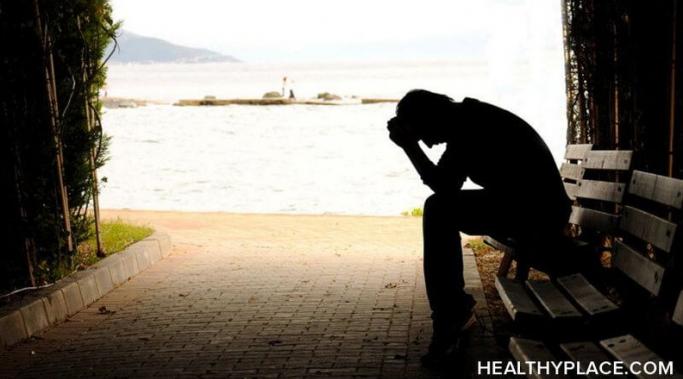Blogs
In my neighborhood, the typical household composition goes something like this: a husband, wife, 2.5 kids under the age of 10, and a dog. My family looks something like this too. Everywhere you look there are kids and more kids. So it’s no surprise that there is an explosion of businesses and groups catering to mommies and baby bumps, and that I’ve met other moms and their little ones. People say that it helps to meet other moms going through the same things that you are (which it does), except that I’m beginning to feel a bit like the odd one out.
Years ago in Al-Anon, I learned that it is almost impossible to be at my best if I am Hungry, Angry, Lonely, and/or Tired. I discovered that I could HALT myself, take a breather, and remedy any of those conditions before moving on with the day. For the most part, it is good advice. The troublesome aspect of being Angry with someone who believed I had no right to be angry plagued me.
He ignored my anger or met it with escalating anger of his own; there was no peaceful conflict resolution in my marriage. There was quite a bit of stuffing anger down deep inside because it did no good to express it to the one person who could help resolve it. There was also quite a bit of yelling and crying on my behalf, mostly directed at him but regretfully spilling out onto my children too.
People with bipolar or depression often slow productivity at work when the symptoms of depression increase. We are told the more you accomplish, the more the reward you will receive. Sometimes the reward is a financial gain, sometimes a job status gain and maybe both types of gain will occur. The more productive we are in a given set of time, whether it is a work day or an assignment, might lead to more free time or less overtime, giving us more time in our personal and family life. Let's try a few productivity habits for bipolar or depression (you don't have to try all of them at once, but utilizing multiple techniques may lead you to success more quickly).
As one of many people living with a depressive illness, I can attest to the crippling nature of depression. But I'm fortunate to have found a depression treatment that works well for me. While I've yet to find a medication or lifestyle change that eradicates major depression or dysthymia from my life altogether, there are drug treatments and lifestyle choices that together provide measurable relief - enough to make a profound difference. Others are not so lucky. Some people have tried medication after medication and have yet to find anything that markedly eases their depression symptoms. These people are living with treatment-resistant depression. What can they do?
I have a long-standing love/hate relationship with Daylight Savings Time. Don't get me wrong--I love having more daytime hours when the weather is on its best behavior, and I love that extra hour of sleep when it's time to Fall Back (if only my children understood that concept). I am not, however, a fan of spending almost all my winter free time in the dark, nor am I a fan of the 2-week grogginess that seems to follow Springing Forward. And as the parent of a child with ADHD and bipolar disorder, I am certainly no fan of how the time change seems to affect his mood.
Yesterday I spent an hour deciding whether to get out of bed. Then another hour deciding if I felt okay to take a shower or eat something, then some considerable time pacing, trying to rid myself of the anxiety standing between me and actually getting dressed (pajamas are seductive, evil, wonderful things).
At first I wasn't going to go to my usual Yoga class but then I was out, and it was round the corner anyway, so with some umming and ahhing and a couple of changes direction, I went.
Left class with my nervous system a lot more chilled. But why all the resistance? It's like I want to live up to all these sayings: Carpe Diem, Own the Day. Only I feel more like a drone.
Gardening requires hope--hope for the right weather, hope for good seed, hope for recovery from any unexpected events. In the same way, recovery from borderline personality disorder (BPD) is an exercise in hope.
I was recently having lunch with a woman who has a series of medical issues, including pain management. One of the medications she is on is oxycodone. She said she would like to get off of the oxycodone but when she has tried, the pain has been unbearable and no other pain medication would touch her pain. So I asked her, "if this medication is working for you and other medications don’t work, then why are you trying to get off of it?"
She said it was because of the stigma attached to that medication.
So I told her something important – you can’t let stigma make your treatment decisions.
"There is no shame in having DID," says one woman living with Dissociative Identity Disorder. Using the pseudonym Pilgrim to protect her family, she says she initially felt shame about her disorder. But with the help of her therapist, she now feels there's nothing wrong with having a Dissociative Identity Disorder diagnosis and wants to pass that message on to others.
I wrote you a story of leaving abuse because sometimes the words of verbal abuse weigh so heavily in our minds and hearts that we no longer hear the good words. Pummeled by negativity, our brains begin to tell us our story of abuse, and in creating it, focusing on the pain, we cannot hear anything else. I call this story of abuse The Foreigners because the kind voices this abused woman hears start as foreign, but become the only voices she wants to hear.







